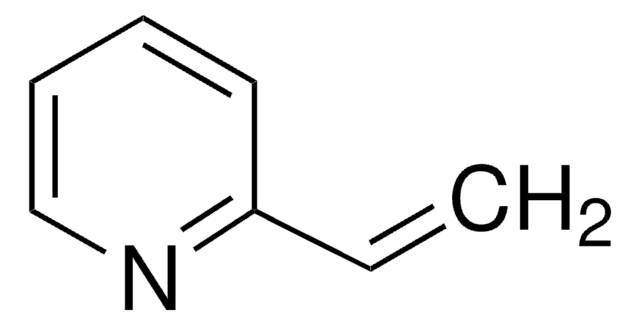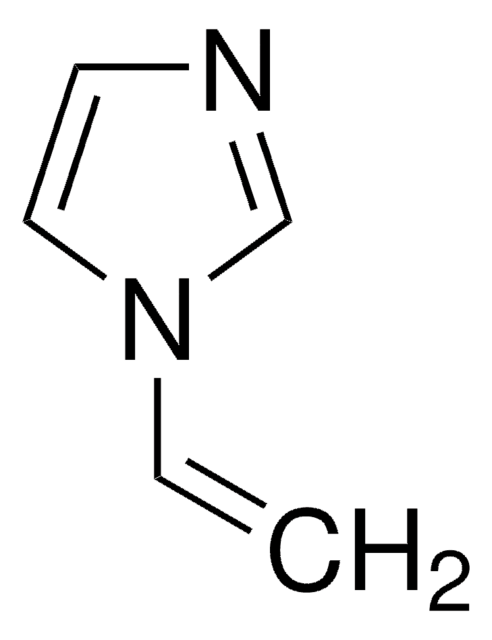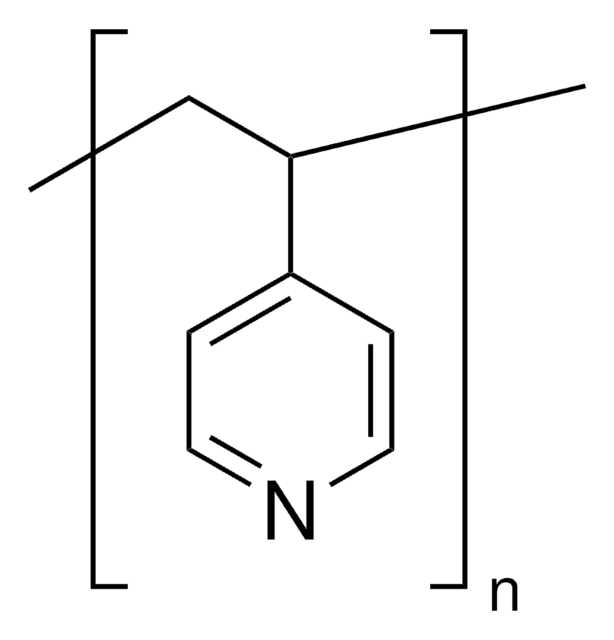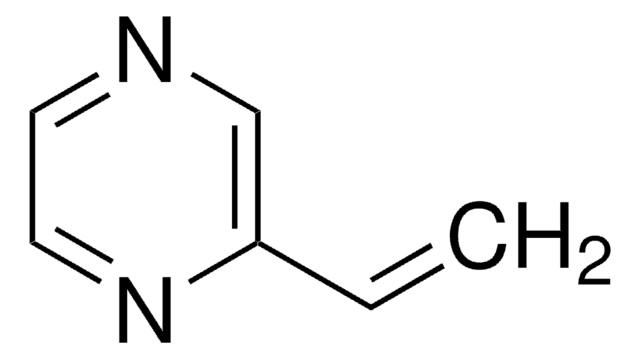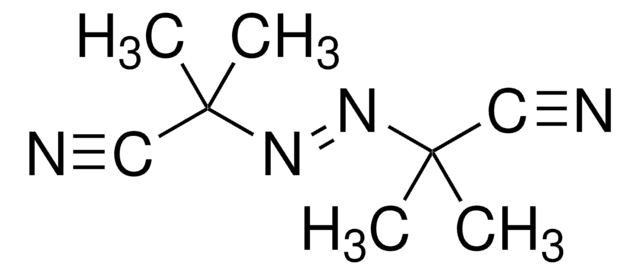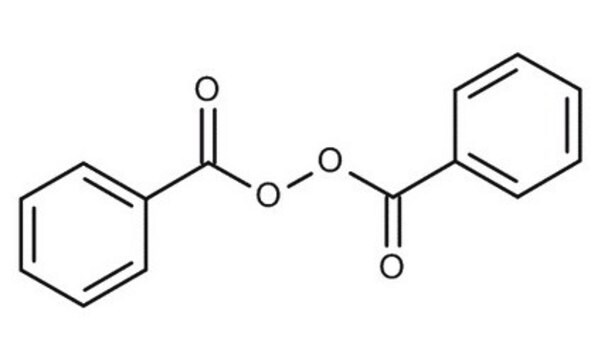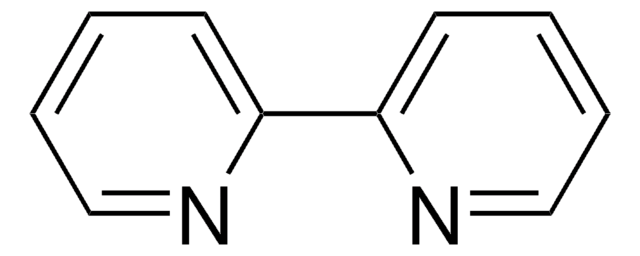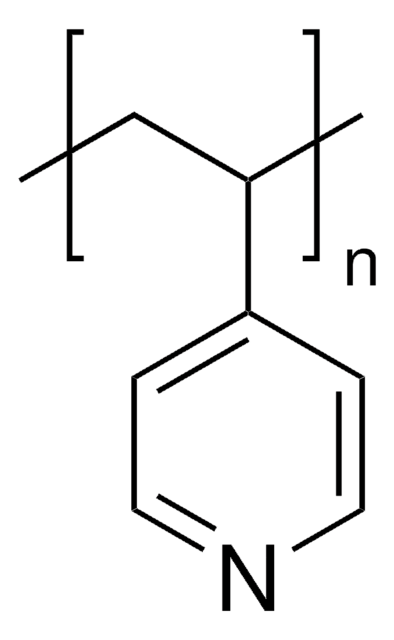Wichtige Dokumente
V3204
4-Vinylpyridin
contains 100 ppm hydroquinone as inhibitor, 95%
Synonym(e):
4-Ethenylpyridine Pyridine
About This Item
Empfohlene Produkte
Qualitätsniveau
Assay
95%
Enthält
100 ppm hydroquinone as inhibitor
Brechungsindex
n20/D 1.549 (lit.)
bp
62-65 °C/15 mmHg (lit.)
Dichte
0.975 g/mL at 25 °C (lit.)
Lagertemp.
−20°C
SMILES String
C=Cc1ccncc1
InChI
1S/C7H7N/c1-2-7-3-5-8-6-4-7/h2-6H,1H2
InChIKey
KFDVPJUYSDEJTH-UHFFFAOYSA-N
Suchen Sie nach ähnlichen Produkten? Aufrufen Leitfaden zum Produktvergleich
Verwandte Kategorien
Allgemeine Beschreibung
Anwendung
- In the synthesis or modification of polymers for drug-releasing contact lenses.
- In the preparation of the zwitterionic polymer, namely poly(4-vinylpyridine propylsulfobetaine). The zwitterionic polymer is utilized for its superior bioinert capability in withstanding clinical sterilization processes, making it suitable for extended medical applications which include the development of biocompatible implants and as a coating material for medical devices.
- To synthesize the temperature and pH-sensitive copolymer, specifically (N-vinylcaprolactam-co-4-vinylpyridine), which is used in drug delivery systems under certain environmental conditions.
- The highly charged p(4-vinylpyridine-co-vinylimidazole) particles, which find applications in various fields such as biomedical, catalysis, and environmental applications.
Signalwort
Danger
Gefahreneinstufungen
Acute Tox. 3 Dermal - Acute Tox. 3 Inhalation - Acute Tox. 3 Oral - Aquatic Chronic 2 - Eye Dam. 1 - Flam. Liq. 3 - Skin Corr. 1B - Skin Sens. 1
Lagerklassenschlüssel
3 - Flammable liquids
WGK
WGK 3
Flammpunkt (°F)
125.0 °F - closed cup
Flammpunkt (°C)
51.67 °C - closed cup
Persönliche Schutzausrüstung
Faceshields, Gloves, Goggles, type ABEK (EN14387) respirator filter
Hier finden Sie alle aktuellen Versionen:
Besitzen Sie dieses Produkt bereits?
In der Dokumentenbibliothek finden Sie die Dokumentation zu den Produkten, die Sie kürzlich erworben haben.
Artikel
Atom transfer radical polymerization (ATRP) has emerged as one of the most successful synthetic techniques for the preparation of polymers with predetermined molecular weights, narrow molecular weight distributions, and high degrees of chain end functionalities.
Unser Team von Wissenschaftlern verfügt über Erfahrung in allen Forschungsbereichen einschließlich Life Science, Materialwissenschaften, chemischer Synthese, Chromatographie, Analytik und vielen mehr..
Setzen Sie sich mit dem technischen Dienst in Verbindung.